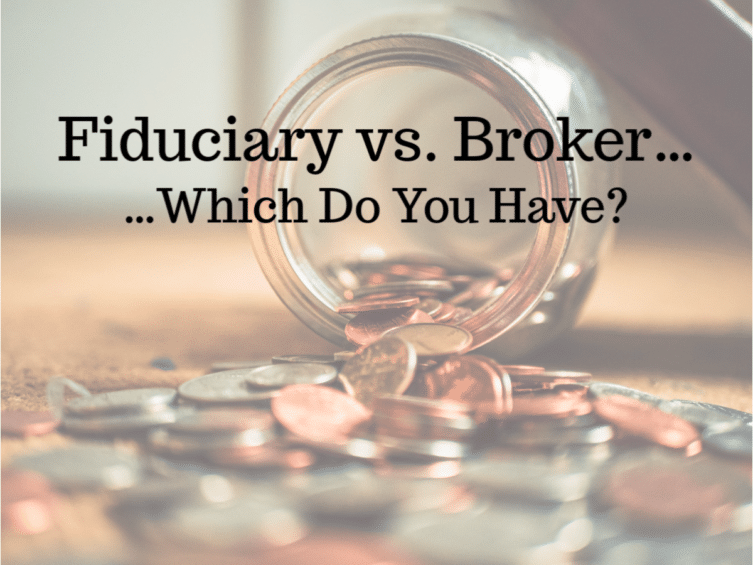Your money is too important to entrust to just anyone.
Let’s take a look at a fiduciary vs. broker and see how the two measure up (and which one you should trust with your money).
Choosing a financial advisor is a major decision and you want to know that your advisor has your best interest in mind. This comes as no surprise as people have heard the stories of Bernie Madoff and other unscrupulous advisors and are confused about who to trust.
In this article, we’re going to examine the difference between fiduciary vs. broker so you can understand and learn who to trust, and know exactly how to find the personal finance planner you’ve been looking for.
Fiduciary vs. Broker
Both will offer products and recommendations based on your unique personal information, but they are not interchangeable. The difference comes down to which standard they operate under.
The Fiduciary Standard
The fiduciary standard was established in 1940 as part of the Investment Advisors Act and is regulated by the Security Exchange Commission (SEC) or state securities regulators.
The regulation states that, by law, an advisor working under the fiduciary standard must:
- Act in the best interest of their client
- Avoid and disclose any conflict of interest
The Fiduciary Standard is a high standard and most financial advisors in the industry are not, and actually cannot, be held to this high standard.
So, who can be a Fiduciary?
A Fiduciary can be an individual advisor or an investment firm who are Registered Investment Advisors or RIAs held to the fiduciary standard. RIAs are required to register with the SEC and will file what is called an ADV. This booklet, which is available online, is a form of public disclosure and goes over an advisor’s compensation, investment philosophy, and any past disciplinary or legal actions against them.
What is a Broker?
Brokers, on the other hand, operate under the suitability standard, which isn’t nearly as stringent as the fiduciary standard.
Under the suitability standard, your financial planner must make recommendations that are suitable based on your particular situation, but they don’t have to consider your best interest.
An example of an advisor that would fall under the suitability standard is a broker-dealer that may work for a bank, Fidelity, Charles Schwab, insurance company, or many other similar arrangements.
Which One Do I Need?
On the surface, these two standards sound similar. After all, finding what suits your needs and acting in your best interest sound like the same thing, right?
Here’s the difference: a broker can sell you the best product s/he offers but will not send you away if their product line doesn’t align perfectly with your needs. A fiduciary, however, is required to act in your best interests, even if those interests are opposed to their own.
Think of it as the difference between a store clerk at Nordstrom’s and a tailor who can make you a custom suit. Or the difference between a butcher and a dietitian. One of them (the broker) is trying to fit you into their mold. The other (the fiduciary) will recommend the best solution available.
Ultimately, the question is: who are they loyal to? A broker is loyal to the company they work for, a fiduciary is loyal to you.
This isn’t to say that you can’t get great advice from a broker. But if given the choice, you should always work with a fiduciary so you can benefit from their unbiased, expert opinion.
How to Find a Fiduciary
Not every financial advisor is a fiduciary. In fact, even some of the biggest names on Wall Street are not allowed to act as your Fiduciary.
So how do you find a true fiduciary in a sea of financial advisors?
The best way is actually the most simple: ASK!
Ask whether your financial planner operates under the fiduciary standard. If they say “no,” find one who does. If they say “yes,” ask them to put that in writing. If they can’t, find one who will.
The following video will give you some additional tips about finding a financial advisor you can trust.
Conclusion
While it’s great to invest in your own future, make sure you choose a Certified Financial Planner who operates under the fiduciary standard of care. This is the best way to make sure you receive unbiased advice that benefits your best interest.


